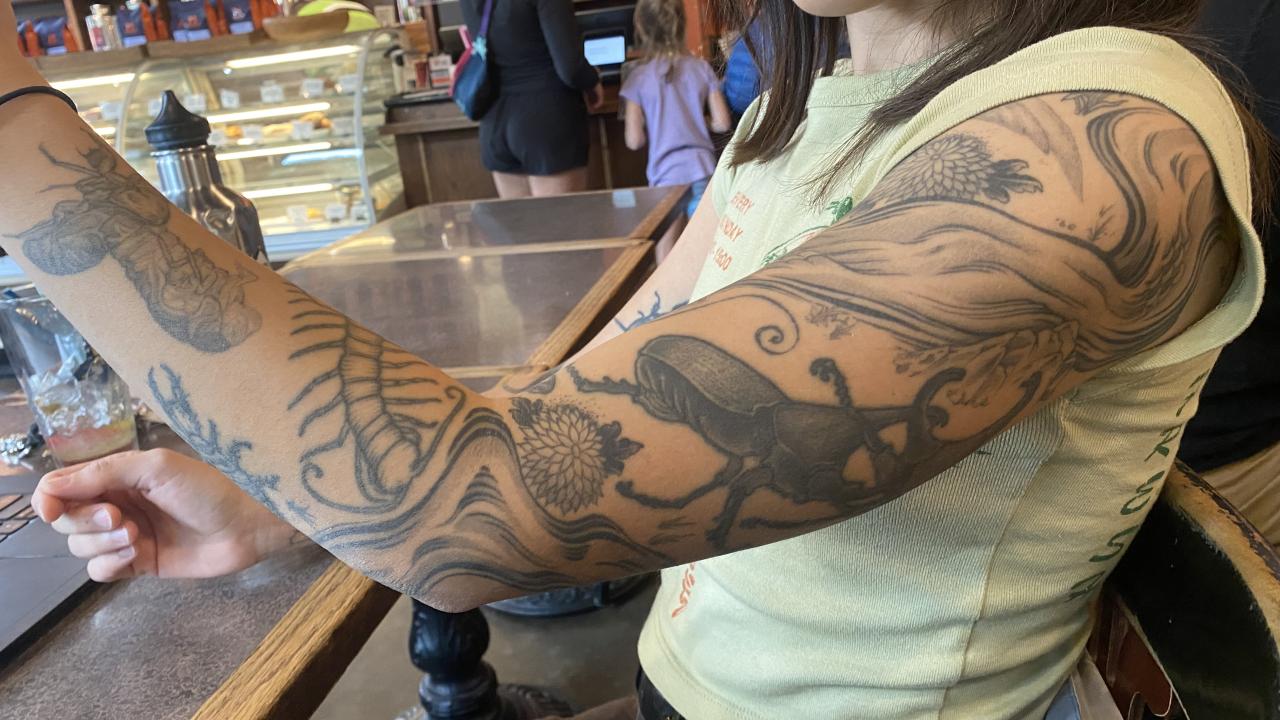What better way to mark a lifetime of science than with a tattoo? This permanent body ink is the badge of true passion for these scientists.
Laci Gerhart
Ecologists aren’t above obsessing over the cool animals in their backyards.
Laci Gerhart, Evolution and Ecology associate professor, has a tattoo of two Madagascar gold dust day geckos that frequented her porch in Hawai’i. She got to know these two geckos really well by recognizing the patterns on their backs, which are featured on her tattoo.
In true ecologist fashion, she used the Wild ID photographic mark-recapture software to identify and name all the geckos that lived on her porch.
“It’s just my nerdy obsession with the geckos that lived on my porch,” Gerhart said.
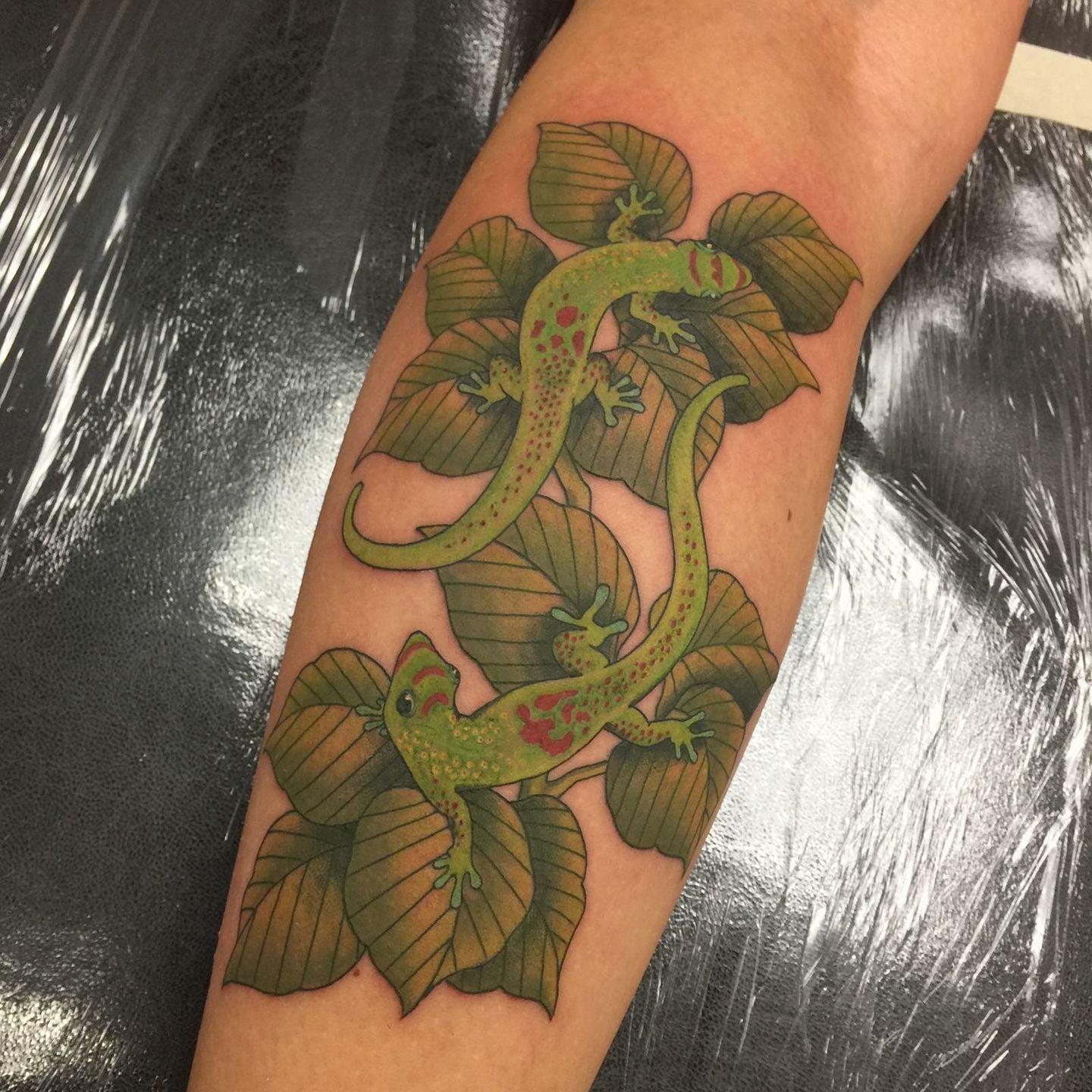

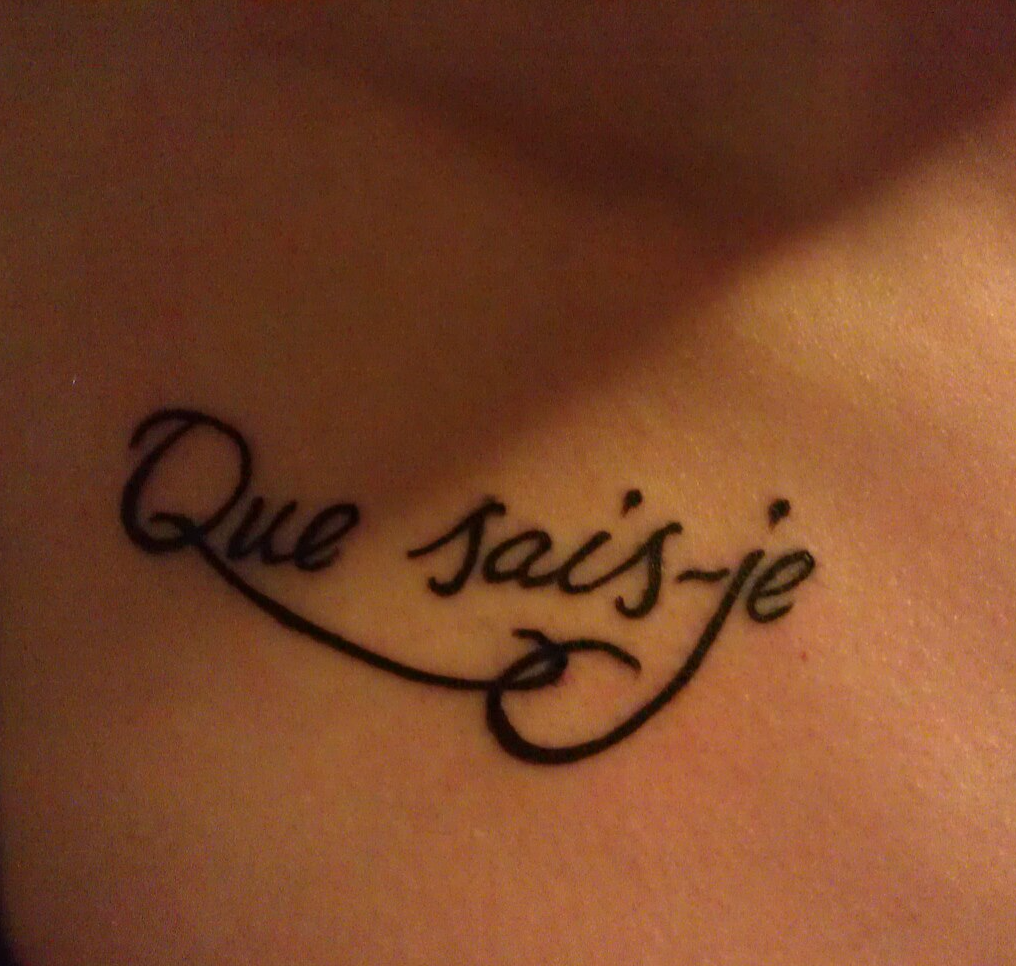
Her other tattoo is the French phrase "Que sais-je" on her right clavicle. The phrase, made famous by French Renaissance philosopher Michel de Montaigne, means, "What do I know?" He used the phrase to remind himself and those who studied with him that, considering all the knowledge there is to have in the world, how much can one person really know?
“I got the tattoo after I completed my dissertation to remind myself that, while I know a lot about some things, there are whole fields of study about which I know virtually nothing,” she said.
Ian Faloona
After going to a tarot reading when he was 13 years old, Ian Faloona, Atmospheric Sciences professor, was told that he would make a great magician.
He considered that career path, but after he got the science bug, he had to let go of that dream. And so, at 19, he got a tattoo of a wizard on his shoulder. According to Faloona, this 1989 tattoo was way before tattoos were cool.
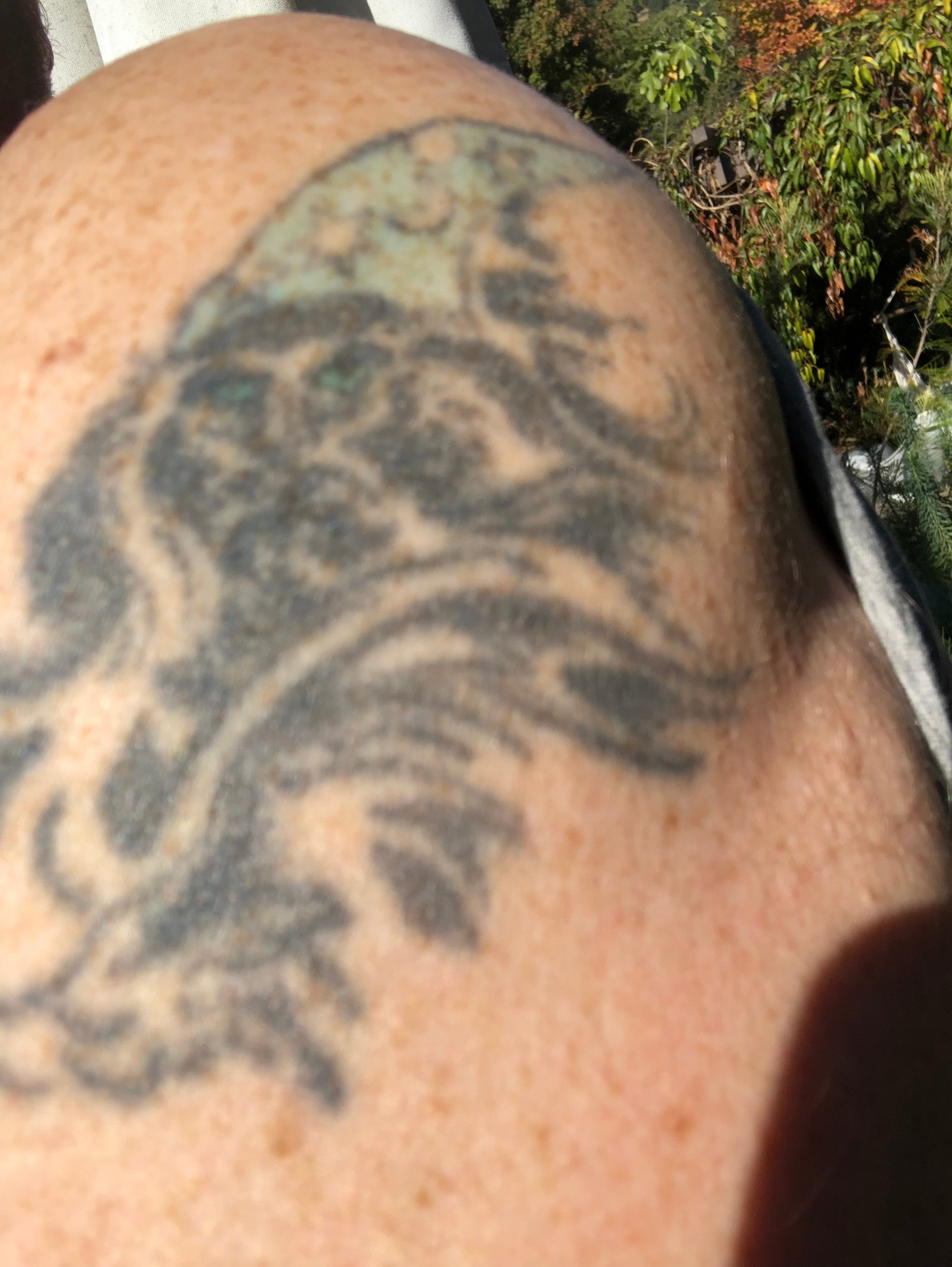
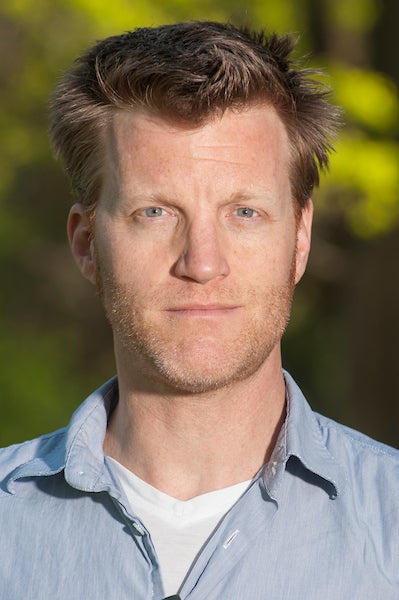
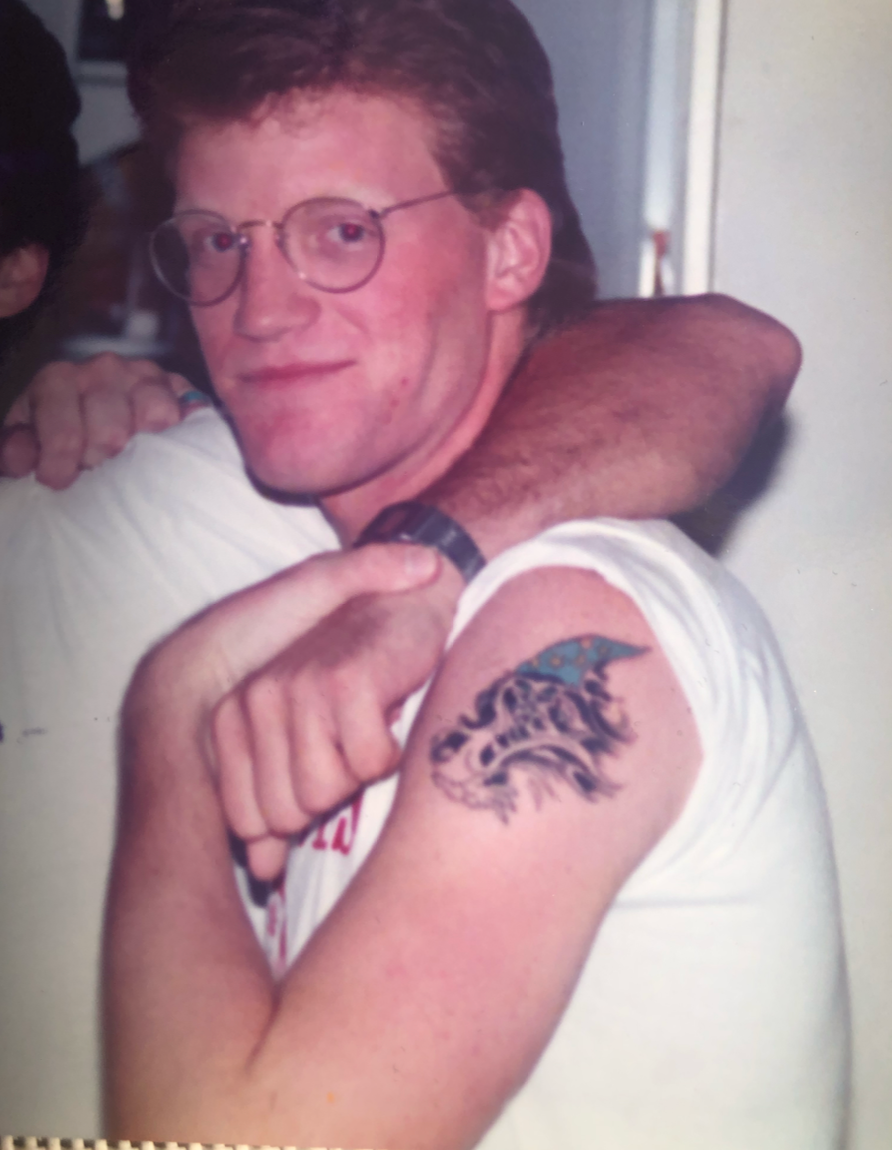
“It was me saying goodbye to that aspect of my personality,” Faloona said. But science is magic, and he strives to remember that. He lives by Clarke’s Third Law, which says “any sufficiently advanced technology is indistinguishable from magic.”
“The fun thing about science is this sort of magical element,” Faloona said. “You’re trying to map out what’s magical, or finding the magic in a rational framework. I want to represent something that is beyond the science on my body.”
Madison Armstrong
Madison Armstrong, a fifth year Population Biology PhD candidate, has quite a few science tattoos.
One of her favorites is of two peppered moths––a “classic urban evolution example,” said Armstrong.
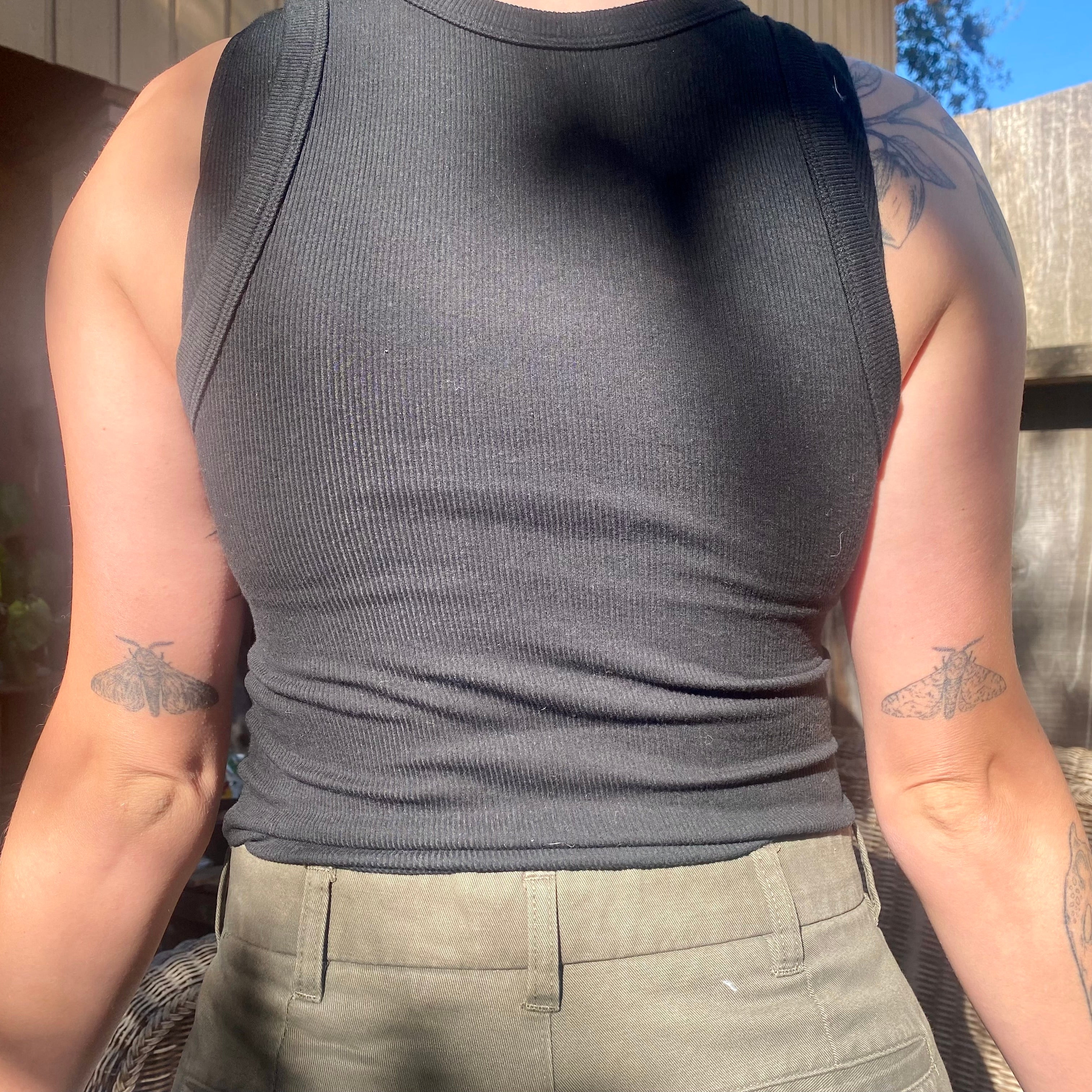
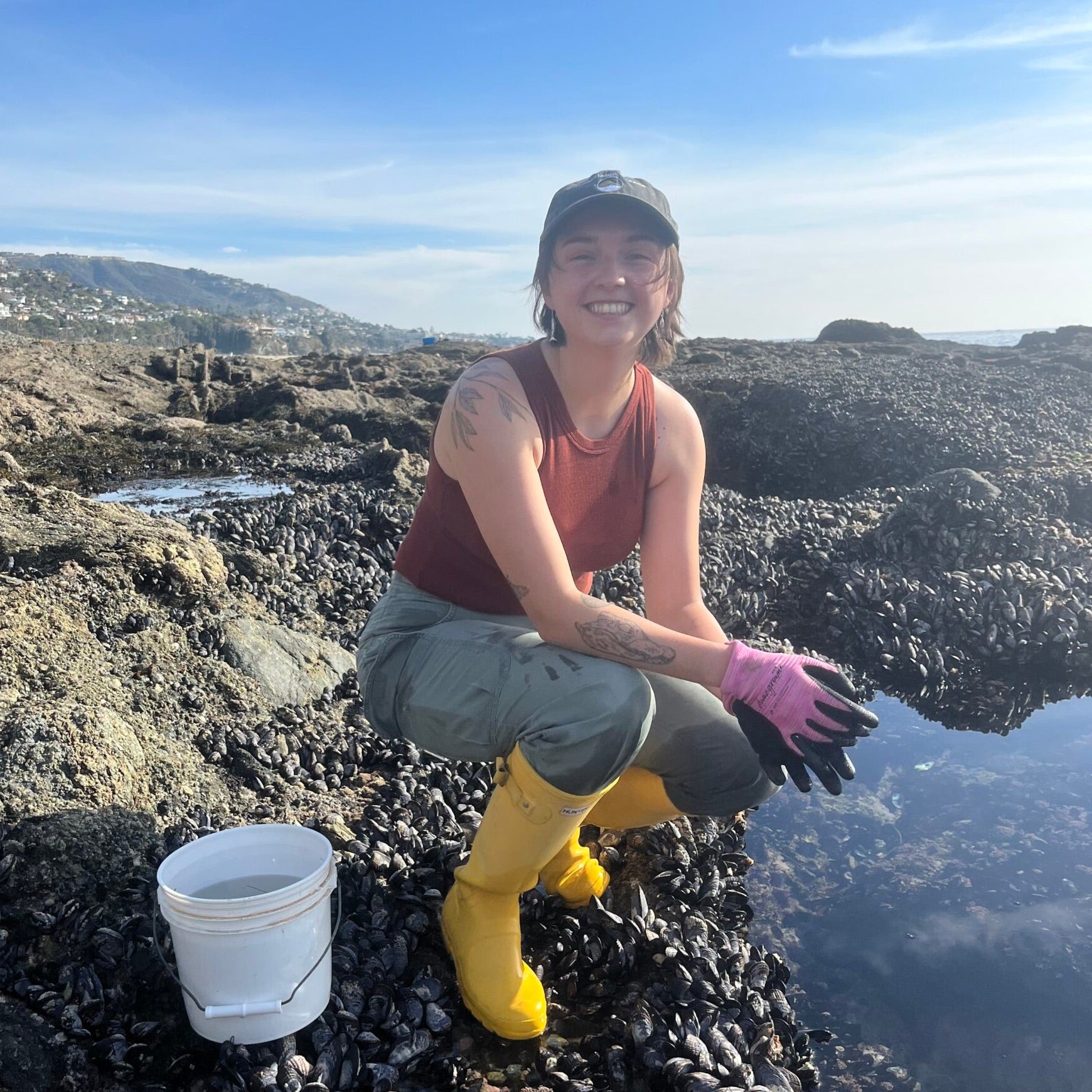
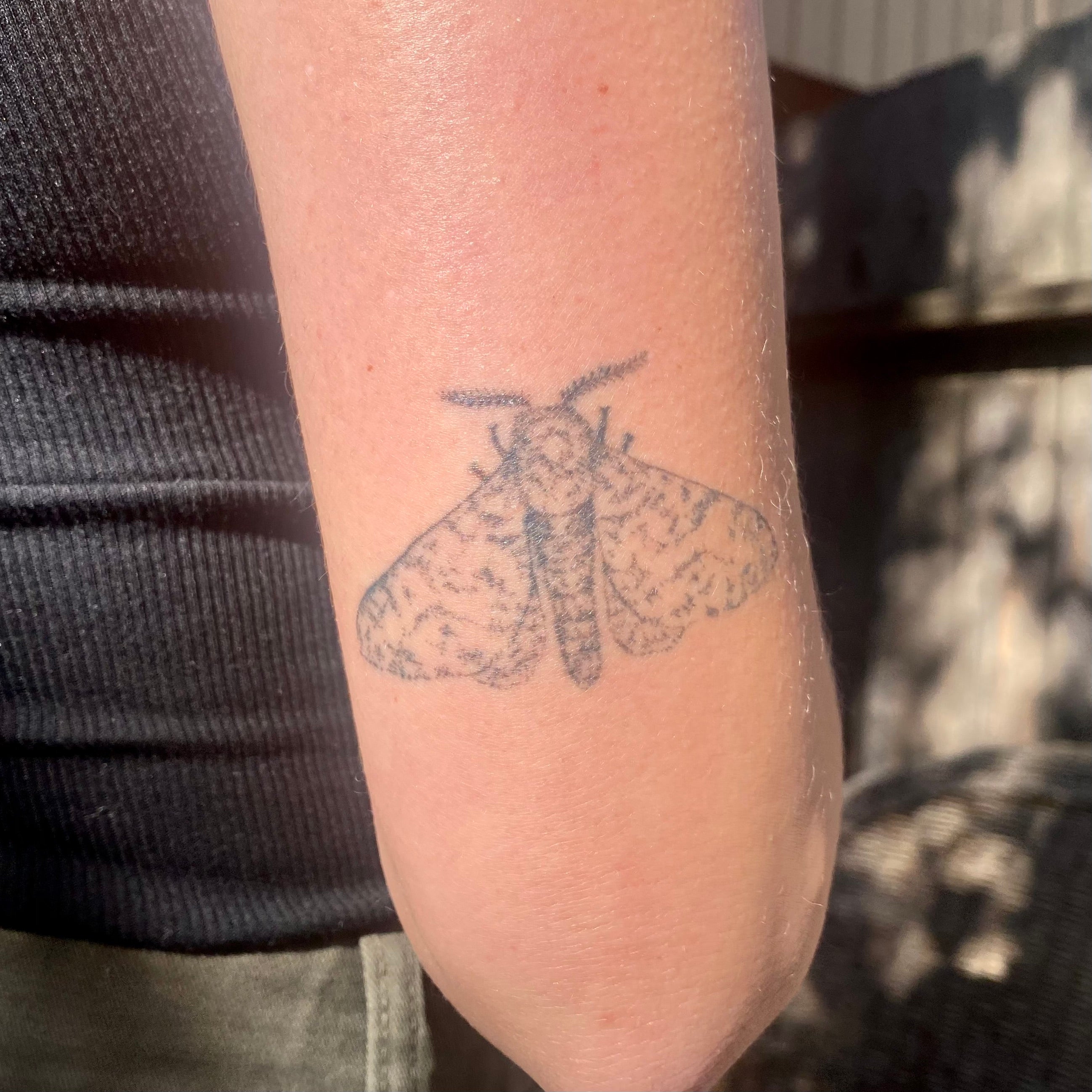
In 1955, Bernard Kettlewell found that the peppered moth uses tree bark as predator camouflage, with the white morph being most common. But after the Industrial Revolution caked the trees in soot, the black moth morphs became more predominant because of the selection pressure against the white morphs, which were now easily spotted by predators against the black trees.
Armstrong’s current work is rooted in urban stressors and marine urban evolution. She’s interested in how organisms deal with new, human-induced changes with little to no mechanisms to prepare them. Her tattoo is a homage to the beginning of her field.
“It’s one of my more nerdy ones that relates back to my love of evolutionary biology and my discovery of urban evolution,” she said. “This field is so cool.”
Kate Laskowski and Kirsten Sheehy
It was a girl’s trip in Amsterdam and everyone was talking about things you regret not doing.
Kate Laskowski’s answer: a tattoo. So late that night, she and her friends found an artist who adorned the words “Endless forms most beautiful” on her arm.
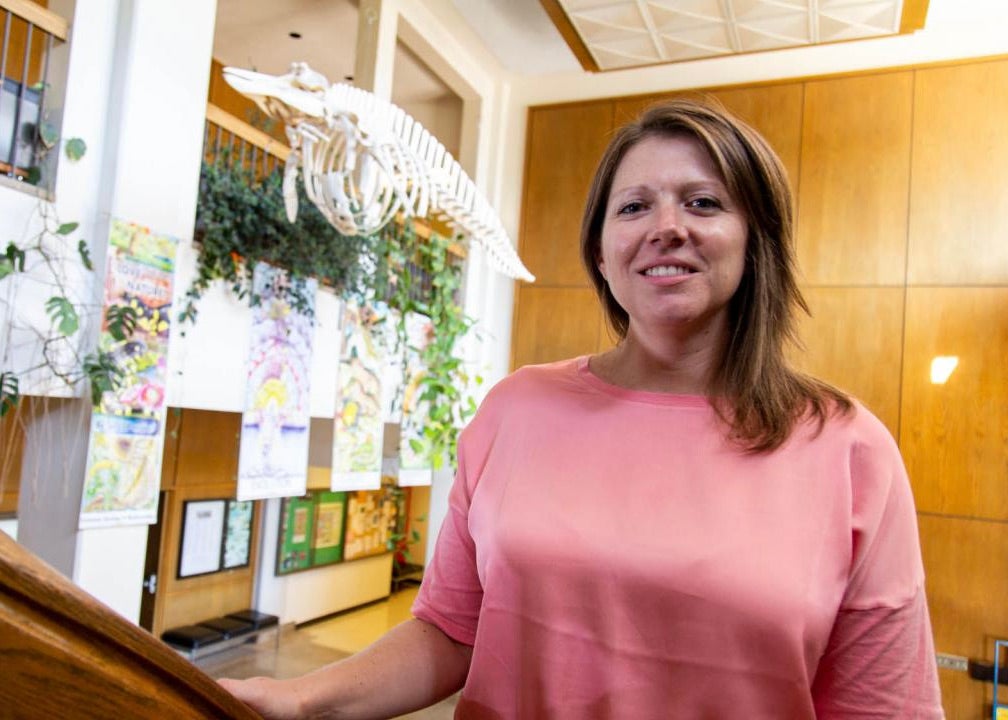
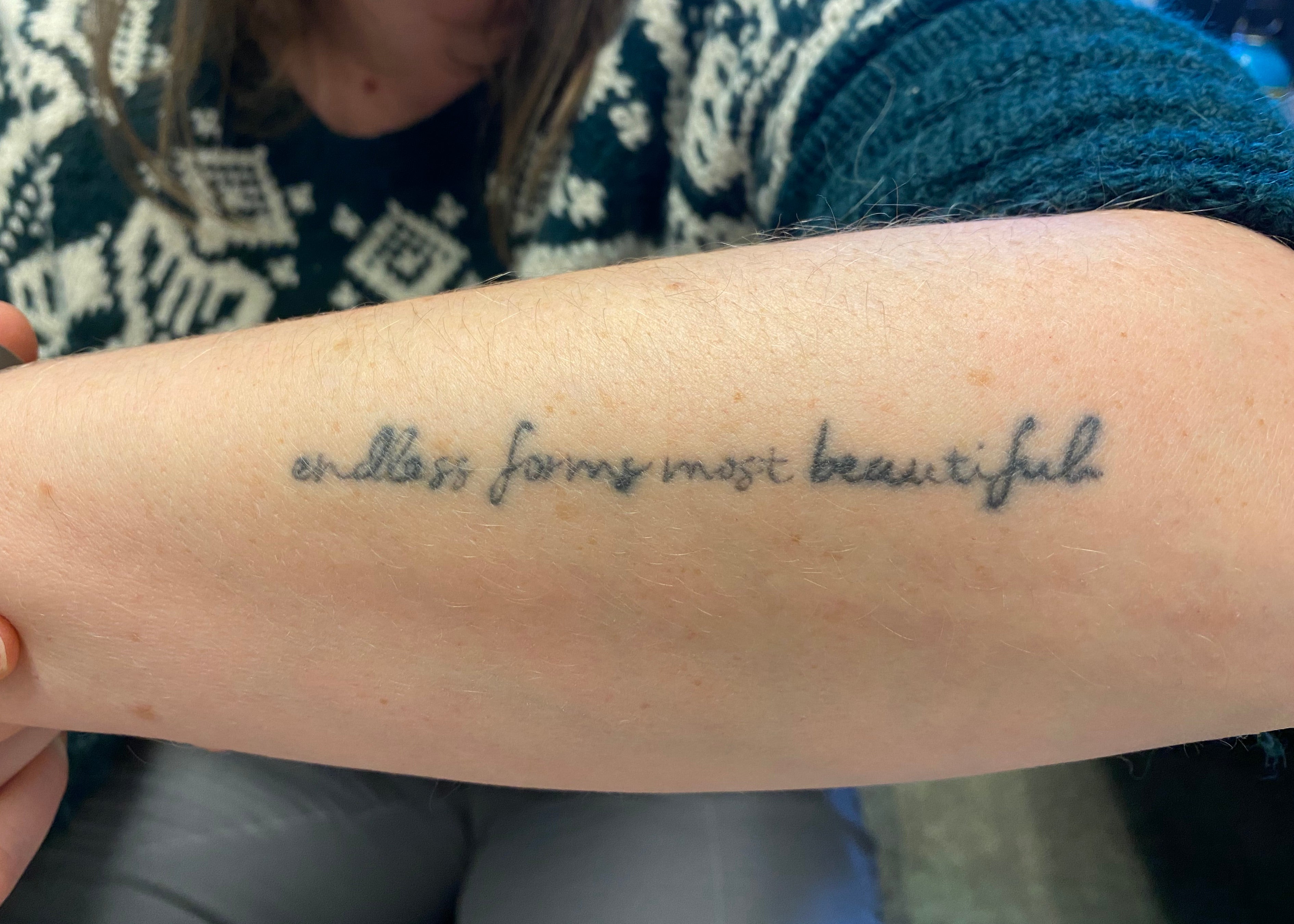
Laskowski is an assistant professor in Evolution and Ecology. Her tattoo is part of the last line from Darwin’s Origin of The Species.
“From so simple a beginning, endless, beautiful forms are continuing to be evolved,” said Laskowski. “It reminds me why I love doing what I do. I’m fascinated by the natural world and all the beauty that’s in it.”
Laskowski studies unique behavioral patterns and processes that generate them, such as development and early life experience. To study this, she uses a clonal species of fish called the Amazon molly, which her Animal Behavior PhD student Kirsten Sheehy has tattooed on her calf.
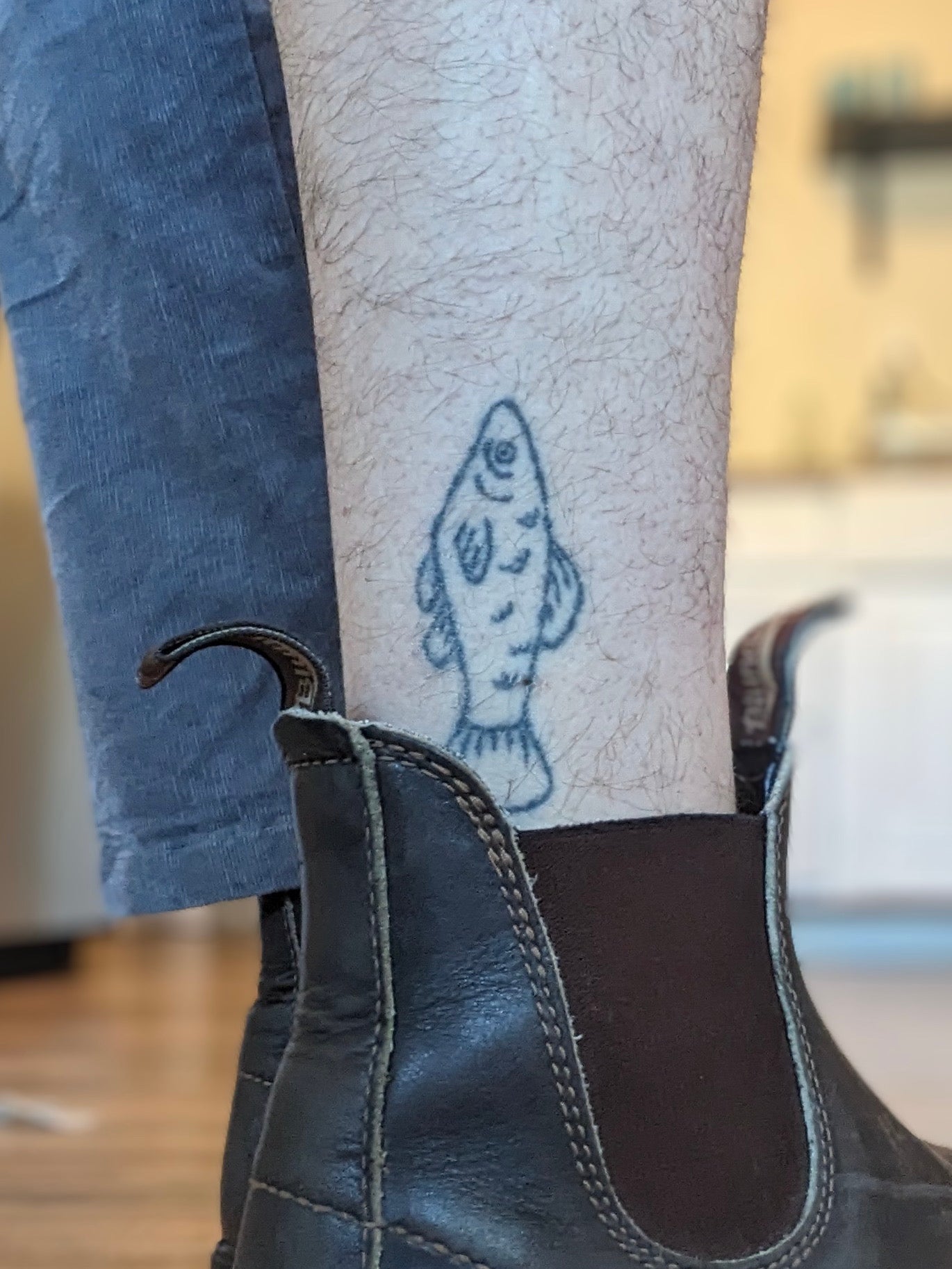
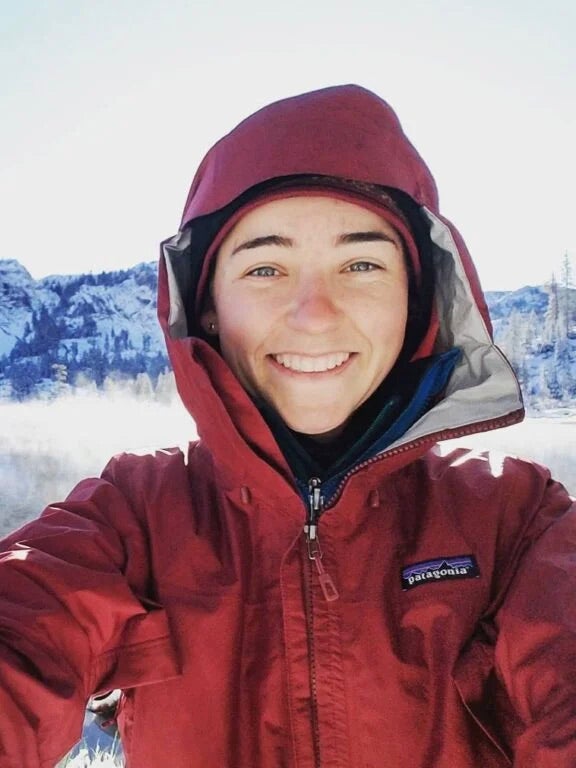
Despite the Amazon molly being genetically identical, each individual behaves differently. To Sheehy, this indicates that “being different from each other is a fundamental part of being alive.”
Sheehy’s best friend inked her tattoo. “This tattoo is a reminder of our friendship and how grateful I am for all the ways our differences allow us to grow.”
Over winter break, Laskowski is planning to expand her "Endless forms most beautiful" tattoo with freshwater fish graphics surrounding the words.
“It’s such a wonderful explanation,” Laskowski said. “The evolutionary processes that have generated all the biodiversity are exceedingly elegant.”
Mia Lippey
With over seven tattoos of insects on her body, Mia Lippey, a fourth year PhD student in Entomology, truly represents her passion.
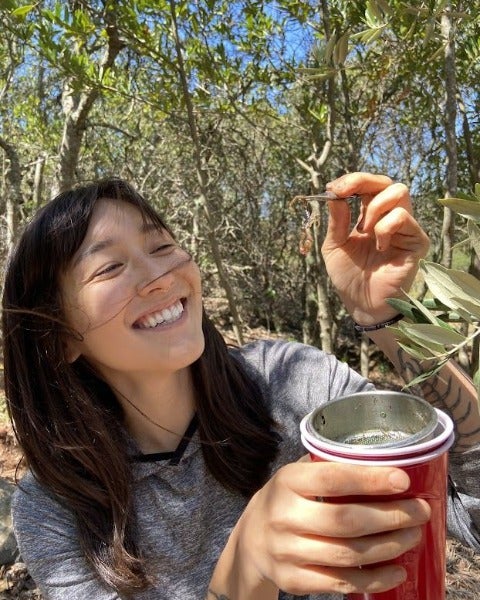
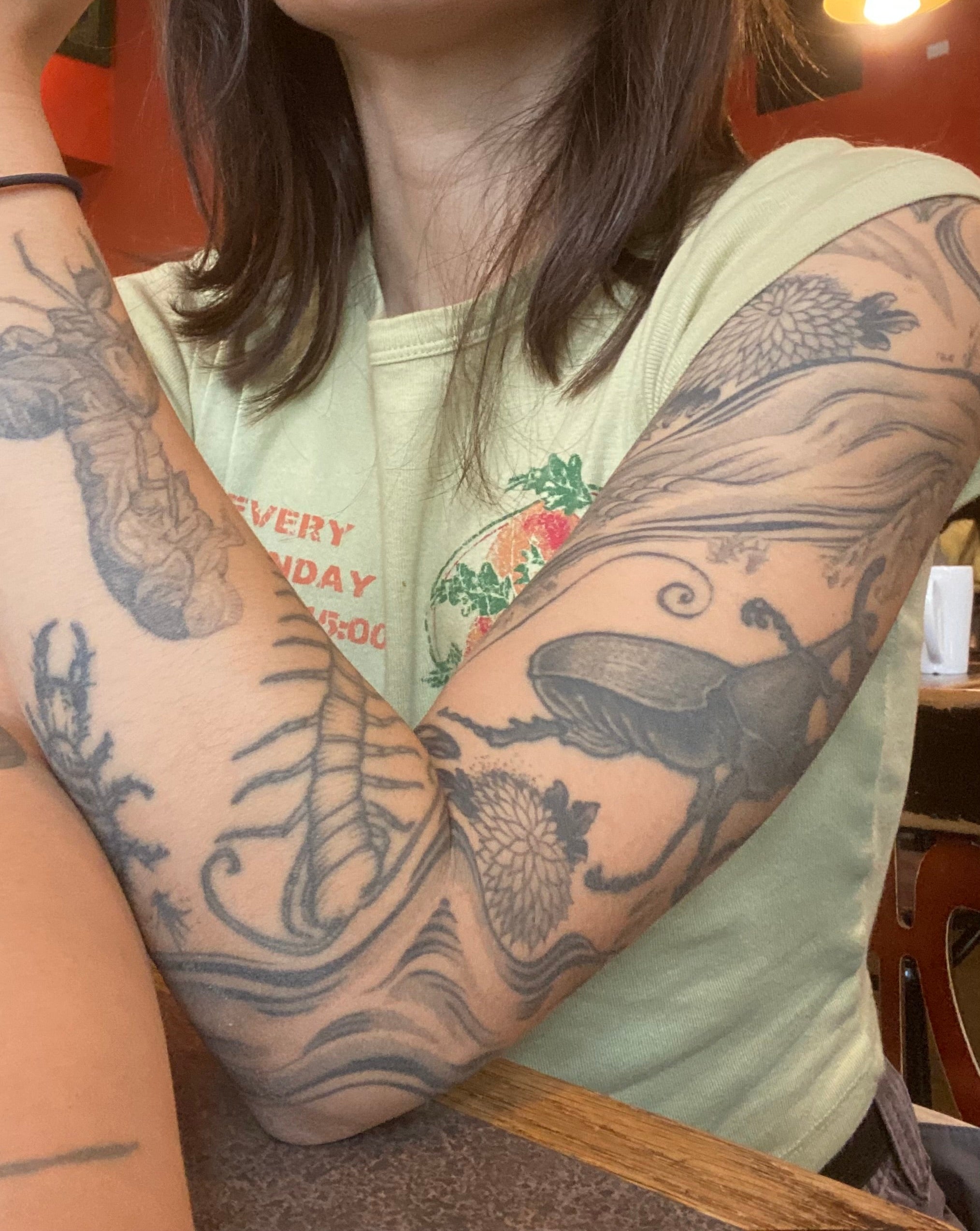
Her tattoos, in her words include:
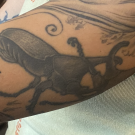
Japanese rhino beetles: “These were the insects that turned me into an entomologist as a child. I grew up in somewhat rural Japan, and it's a common pastime for kids to collect these rhino beetles and have them fight the males in cages. I spent a lot of my childhood collecting and fighting these little guys.”
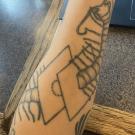
Scolopendra: “I first came across a scolopendra in the wild when I was hiking the Fushimi Inari Shrine in Japan. I found one at the summit of the hike, and I knew I had to get one tattooed on me!”
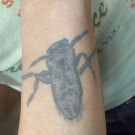
Backswimmer (Notonectidae): “One of the most painful bites I've gotten from a bug is this little backswimmer on my outer forearm. I gained a lot of respect for them after getting bitten.”
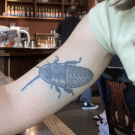
Madagascar cockroach: “They make great pets. I kept a bunch over the years. They hiss when you pick them up by releasing air through their exoskeleton. Super cute and charming little guys!”
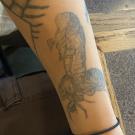
Emerging cicada:” Cicadas are another big part of my childhood––Japan is swarming with them in the summertime. They are so loud and relentless in the summer that you go a little crazy.”
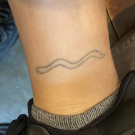
Worm: “It's one of my favorites. I did it myself!”
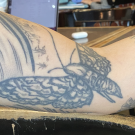
Darwin moth: “These moths are named after Darwin because his observations of them led him to his theory of evolution. He noticed that they specialize on flowers with very long corollas, and theorized that the flower and moth, with a very long mouthpart, evolved together.”
Malia Reiss is a science news intern with UC Davis Strategic Communications. She studies environmental science and management at UC Davis.
Media Resources
Kat Kerlin, UC Davis News and Media Relations, 530-750-9195, kekerlin@ucdavis.edu
